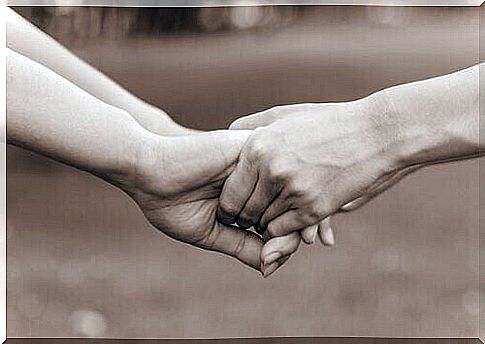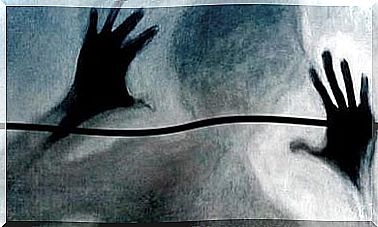To Forgive Involves Understanding, Not Justifying

Knowing how to forgive has always been seen as a virtue. There are people who find it very difficult to pull the line and move on when someone has done something that has hurt them. While others forgive absolutely everything that others do… How do you strike a balance?
Knowing how to forgive does not mean forgetting everything that others do to us and how we feel. On the contrary, it is important to learn to leave resentment behind, but without justifying the unjustifiable…. Read this article to learn how to use forgiveness in a balanced way and thereby improve your emotional well-being!
“It is only truly courageous spirits who know how to forgive. A vile being never forgives because it is not in his nature. ”
-Laurence Sterne-
Forgiveness begins with oneself
Learning to forgive does not mean that we do not care what others do, but that we prevent that initial nervousness or embarrassment from turning into resentment and flooding our life and the relationship with the person we are with unhappiness. hurt. In fact, forgiving helps us let go of what happened, but by making decisions that protect us from what has harmed us, for the future.

We think about forgiving others but we have a bad habit of forgetting to forgive ourselves. The reality is, none of us are perfect. Even though this is a cliché, we all make mistakes. It is important for us to understand this, as we often have unattainable levels of demands on ourselves, which can generate feelings of frustration, anxiety or nervousness against ourselves.
So, recognizing that we are human is the first step in learning to forgive. But we can take one more step: if we have done something that we believe is wrong, we can stop spinning and flipping that fact in our heads and look for a solution.
The question lies in changing this spiral of thought that takes us from a dead end to a confrontation much more suited to the problem. We have two alternatives: solve what we have done if it is possible or think about what we can do in the future to avoid falling into the same mistake.
Forgiveness involves understanding that others also make mistakes
Once we realize that we are not perfect, we must give the same respect to others. Often, it is easier for us to justify our mistakes than those of the people around us. The reality is that, just as we have demands on ourselves, we have demands on those around us.
“To forgive is not to ignore the other’s limits and faults, or not to take them seriously, it is to take away their importance, with good humor, by saying to oneself: I know that you do not you’re not like that! ”
-Robert Spaemann-

So, we expect things from people who cannot always give them to us. Understanding that others are not obligated to obey our expectations is very important in learning to forgive what we believe they have done wrong. Just like when we get angry with ourselves, it is important to let go of resentment.
Again, turning around and going back to what the other person did to us in our head doesn’t help. If something bothers us, we must try to understand the reasons that may have led the other to act in this way. Having a conservation on this, trying to find a solution is often beneficial.
Forgiving doesn’t mean everything is justifiable
Now it’s not about forgiving everything you do out of habit. It is important to give weight to our own rights and needs. If we constantly excuse the offenses that others impose on us, we are harming our well-being and preventing our self-assertion.
“To forgive too much of the one who is wrong is to be unjust to the one who is not wrong.”
-Baldassare Castiglione-

Learning to listen to our emotions in these cases will give us clues as to what to do. In this way, we will learn to set limits on others and to defend our own rights.
In order to learn not to forgive absolutely everything, it is important to reflect on what happened and why we are angry. Thus, we will try to attribute the responsibility for what happened to the corresponding person.
It is not a question of looking for the culprits, but of distributing what belongs to each one. Because before exonerating the other, it is advisable to talk about his behavior and what we expected or what we wanted to happen. It is therefore about balancing the balance between our needs and those of others. Learn to forgive!
Also read:








